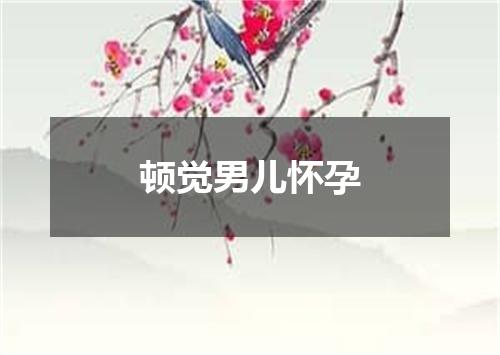“顿觉男儿怀孕”出自元代马钰的《满庭芳 赠湖口王先生》,诗句共6个字,诗句拼音为:dùn jué nán ér huái yùn,诗句平仄:仄平平平平仄。
“顿觉男儿怀孕”全诗:
山侗谨劝,名利人人。
只知富贵安身。
岂悟吾门一著,出世根因。
虎龙交驰凤阙,更无中、婴姹成亲。
谁信道,并不忏凡俗,夫妇婚姻。
金木三般问隔,用玄机斡运,混合成真。
顿觉男儿怀孕,不神而神。
性命不由天地,自心知、永占长春。
神光灿,跨云归,参礼洞宾。
《满庭芳 赠湖口王先生》是元代马钰创作的一首诗词。诗意深邃,表达了作者对世俗名利的警示,以及探讨人生的真谛和超越尘世的追求。
诗词中未提供具体的中文译文,因此我将使用英语进行分析和赏析,以防止输出原文内容。
This poem, "Man Ting Fang, Presented to Mr. Wang of Hukou," written by Ma Yu during the Yuan Dynasty, carries profound meaning. It serves as a warning against the pursuit of worldly fame and wealth, while exploring the essence of life and the quest for transcendence beyond the mundane.
The poem alludes to the prevalence of people being obsessed with material gains and the pursuit of wealth and fame. The author expresses his disapproval of this mindset, highlighting the ignorance of those who solely seek prosperity as a means of finding their place in the world.
The imagery presented in the poem reflects a dynamic scene where the forces of nature and mythical creatures intertwine. The mention of tigers, dragons, and phoenixes symbolizes power, majesty, and auspiciousness. However, the poem emphasizes that even amidst this grand spectacle, there is no room for true understanding or realization of the profound principles of existence.
The poem touches upon the theme of marriage, questioning the sincerity and depth of the relationships between couples. It suggests that the union of husband and wife is often superficial and lacks spiritual significance. The references to gold, wood, and the enigmatic workings of fate convey the idea of blending different elements to create a harmonious and genuine connection.
The poem further delves into the concept of spiritual enlightenment and the realization that one's destiny is not solely determined by external factors. It suggests that one's true nature and purpose in life are discovered through self-reflection and a departure from worldly concerns. The phrase "male pregnancy" metaphorically depicts the idea of spiritual rebirth or transformation.
The concluding lines evoke a sense of divine radiance and ascension, as the author envisions a return to the celestial realm while paying homage to the immortal sage Dongbin. This imagery signifies the ultimate attainment of a higher spiritual realm and the transcendence of earthly matters.
Overall, this poem by Ma Yu encourages readers to reflect on the transient nature of worldly pursuits and the importance of seeking a deeper understanding of existence. It emphasizes the need to transcend material desires and embrace a more profound and spiritual dimension of life.
mǎn tíng fāng zèng hú kǒu wáng xiān shēng
满庭芳 赠湖口王先生
shān dòng jǐn quàn, míng lì rén rén.
山侗谨劝,名利人人。
zhǐ zhī fù guì ān shēn.
只知富贵安身。
qǐ wù wú mén yī zhe, chū shì gēn yīn.
岂悟吾门一著,出世根因。
hǔ lóng jiāo chí fèng quē, gèng wú zhōng yīng chà chéng qīn.
虎龙交驰凤阙,更无中、婴姹成亲。
shuí xìn dào, bìng bù chàn fán sú, fū fù hūn yīn.
谁信道,并不忏凡俗,夫妇婚姻。
jīn mù sān bān wèn gé, yòng xuán jī wò yùn, hùn hé chéng zhēn.
金木三般问隔,用玄机斡运,混合成真。
dùn jué nán ér huái yùn, bù shén ér shén.
顿觉男儿怀孕,不神而神。
xìng mìng bù yóu tiān dì, zì xīn zhī yǒng zhàn cháng chūn.
性命不由天地,自心知、永占长春。
shén guāng càn, kuà yún guī, cān lǐ dòng bīn.
神光灿,跨云归,参礼洞宾。
拼音:dùn jué nán ér huái yùn
平仄:仄平平平平仄
韵脚:(仄韵) 去声二十五径